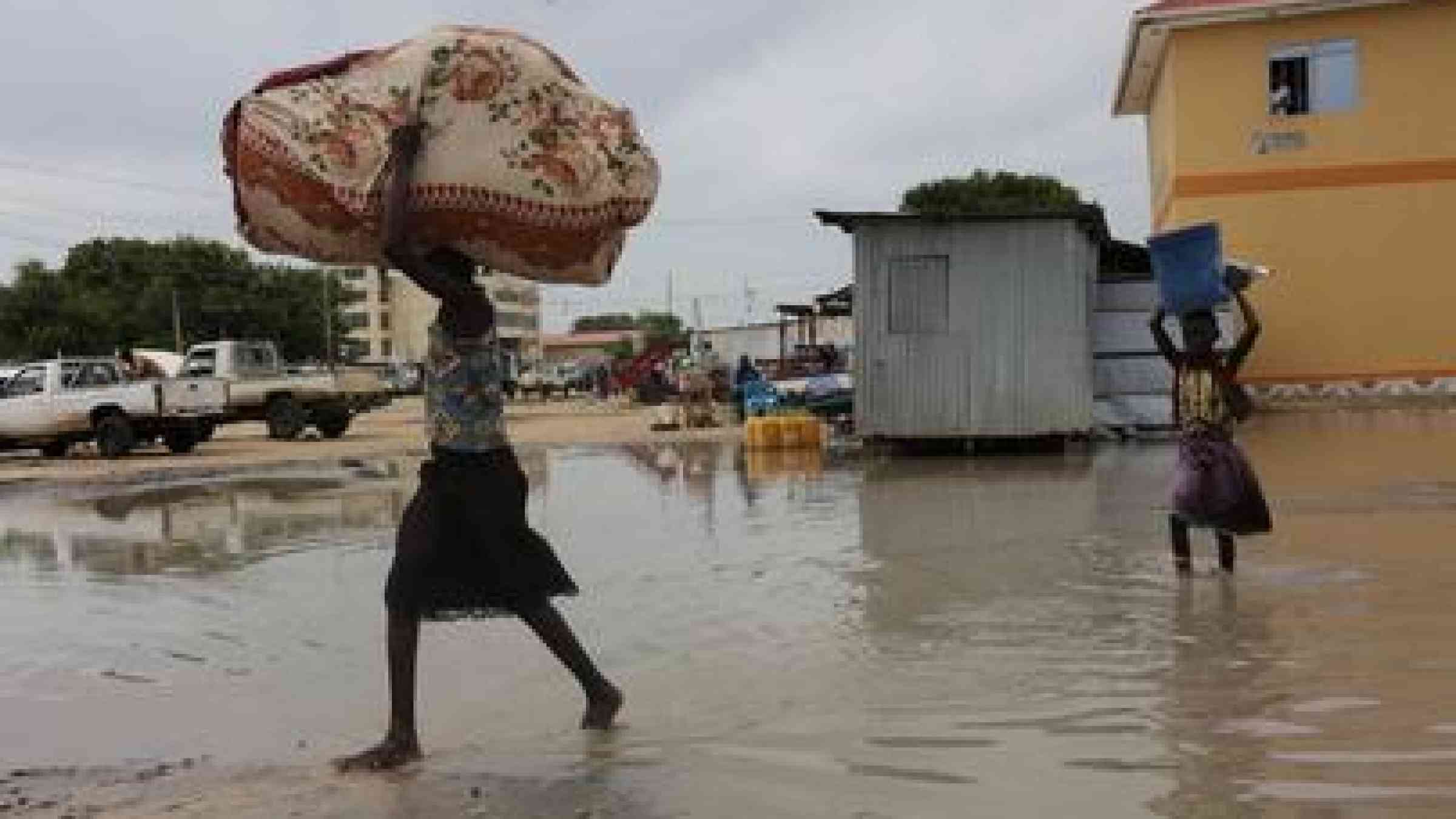Climate disasters will hit women hardest, says 'Handmaid's Tale' author

As conflicts and catastrophe grow more frequent with climate change, some women and girls may be raped or forced to sell sex
By Lin Taylor
Women will suffer most from the devastation of climate change, as lawlessness triggered by disasters and food shortages make them vulnerable to rape and other violence, acclaimed dystopian novelist Margaret Atwood said on Friday.
Some women and girls are forced to sell sex to survive, and others are raped in times of conflict and catastrophe growing more frequent due to climate change, the 78-year old Canadian author said at a London conference.
"Of course, those kind of events give rise to civil unrest, wars, resource wars, battles for water," said the author of the 1985 novel "The Handmaid's Tale."
"Women under those situations will suffer disproportionately, and their children," she said.
Atwood's popular novel imagines a totalitarian future when fertile women are forced into sexual servitude to repopulate a world facing environmental disaster.
It has shot back up the bestseller lists after being made into a popular, award-winning television series.
Research has shown that women's vulnerabilities are exposed during the chaos of cyclones, earthquakes and floods, according to the British think-tank Overseas Development Institute.
"If there is no civil protection and you don't have any money, what is the one thing that gets traded, always? In war conditions, rape is used a military tactic," Atwood said at the conference on women and climate change hosted by Invisible Dust, an arts and science organisation.
Swelling populations and food demands, combined with even scarcer water and land resources, could lead to a doubling of food prices and trigger civil unrest in some developing countries, the United Nations Environment Programme (UNEP) has said.
Such scenarios already have played out in North Africa, the Middle East and South East and South Asia, according to a 2016 report by UNEP and Global Footprint Network.
Atwood said she was optimistic for the future but warned that many people have grown complacent about the impacts of climate change.
"It doesn't usually click for them until the floodwaters sweep into their house," said the Booker Prize-winning author.
"The problems are multiple, but I appreciate that people are tackling it," she said.